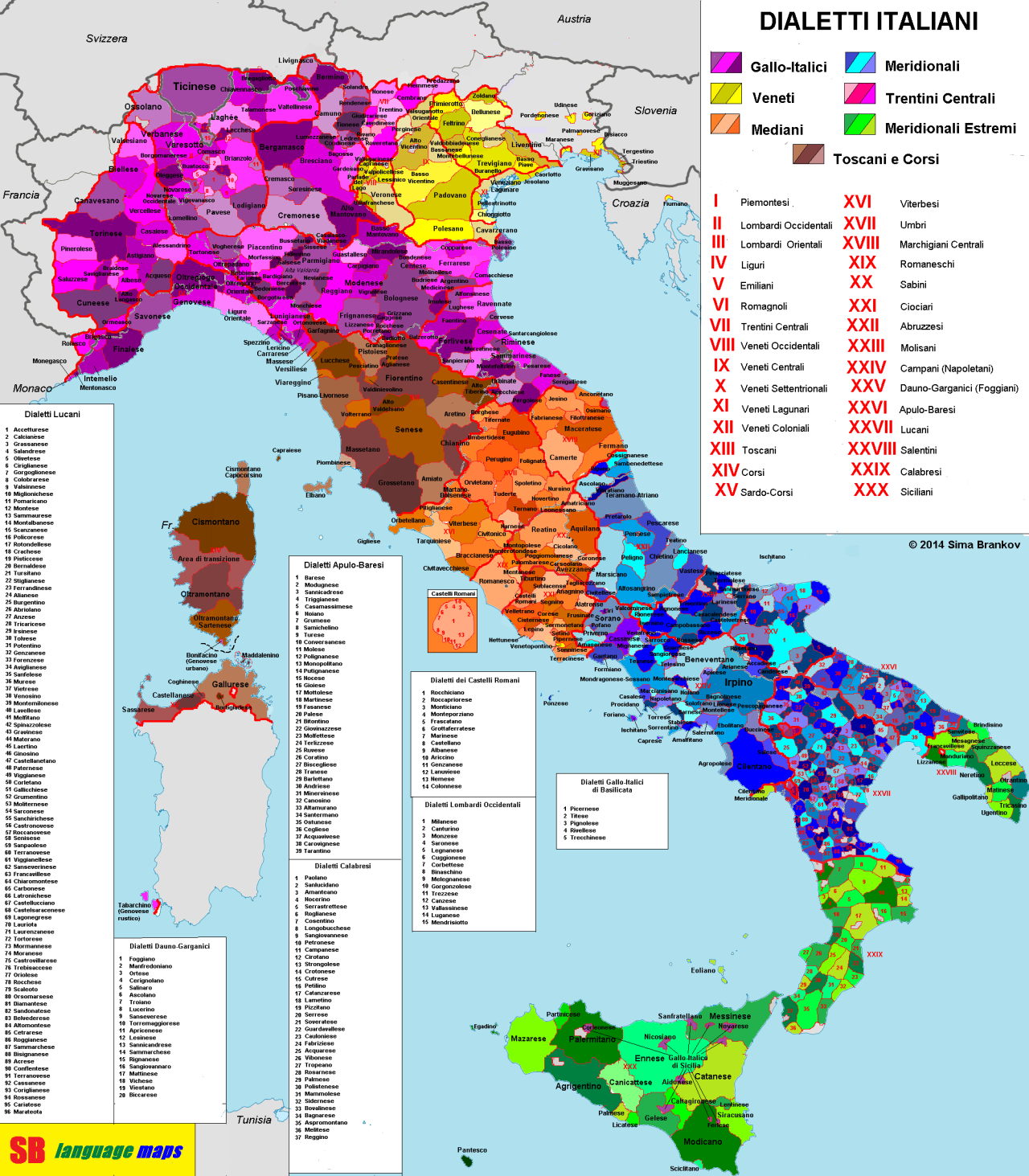Dialetti italiani (Italian Dialects)
One of the main characteristics tnat is above all amazing for foreigners that visit or live in Italy is the awful lot of dialects currently spoken here.
Of course, there’s a standard language, Italian, that’s spoken and understood everywhere (or almost everywhere, to be completely honest).
Standard Italian directly derives from Tuscan or, better, from Dante’s Inferno (La Divina Commedia/The Divine Comedy in Italian). The present Tuscan is the dialect that most of all is similar to Italian. My dear Tuscan followers, I know that now you are preparing to stab me (and most of all the Sienese Tumblers, because they say its language is the purest Tuscan, and as a consequence the purest Italian of all, but you know this claim isn’t entirely true).
Anyway, Italian dialects are so different from each other than an average Southern Italian can’t understand at all a Northern one, if he speaks its own dialect, even if they all are clearly Romance languages. They are different from each other not only for their accents, but for grammar, words, sayings, and so on.
Also, there are some linguistic islands, mainly in Southern Italy, where the locals speak a sort of ancient Greek (Apulia and Calabria), Albanian (Central and Southern Italy), Catalan (North-West of Sardinia), some Medieval German dialects (Piedmont, Veneto, and Trentino), a French dialect (Patois), in Val d’Aosta/Vallée d’Aoste, and so on.
Another issue is the South Tyrol ( Alto Adige / Südtirol), just south of Austria, that ruled that area until 1918 (end of World War One), when it was annexed to Italy. Most of its population is currently German speakers, with a significant proportion of Italian speakers, immigrated after the annexion, and a minoriy of Ladin speakers (another Neolatin language).
Is it difficult to understand? I know, it’s difficult also for us Italians. But no fear, standard Italian is spoken everywhere, and There is a strong trend towards the use of English, as international language.
(via feathers)
Notes
ablackunicornuniverse liked this
giuliaarcidiacono05 liked this
slicingfruit liked this
sch4r4 liked this
obnubilazione liked this
robb-greyjoy liked this
moved-aizer-universe reblogged this from enghurrd
moved-aizer-universe liked this
mydearcharacter liked this
malistrice liked this
amnesiamei liked this
a-super-evil-cat-who-murders liked this
hazelphoenix reblogged this from italian-landscapes and added:
Wait a minute. There’s “molinellese” near Bologna? They actually included molinellese, I’m…. even us “molinellesi”...
p1325 reblogged this from italian-landscapes and added:
yeah trust me Everybody understands Standard Italian, English I think it depends on where you’re going
p1325 liked this
apocrypha-mindokah liked this
thecolofulgirl liked this
frelasien reblogged this from italian-landscapes
puolukka-trash reblogged this from italian-landscapes
puolukka-trash liked this
frauigelandtheboys liked this
tomorrowmaybehell liked this
doodlesky reblogged this from italian-landscapes
tea-e-biscotti reblogged this from italian-landscapes
tea-e-biscotti liked this
i-airelav liked this
misskitten4 liked this
we-must-do-better reblogged this from italian-landscapes
m-endican liked this
amorechiara reblogged this from italian-landscapes
sparklysj liked this
 itsbeenalong-day liked this
itsbeenalong-day liked this vilesmolpuffpastry reblogged this from teimi
alienslayer liked this
teimi reblogged this from italian-landscapes
golden-heart-knight liked this
ladyofthefirenation liked this
beautyysmile liked this
daydreamenthusiast liked this
sasipeach reblogged this from italian-landscapes
saadpug liked this
theyre-just--girls liked this
religioiusstudies liked this
black-brunswickers liked this
italian-landscapes posted this
- Show more notes
